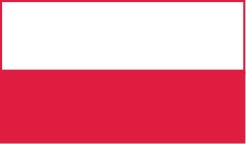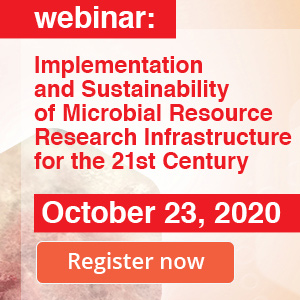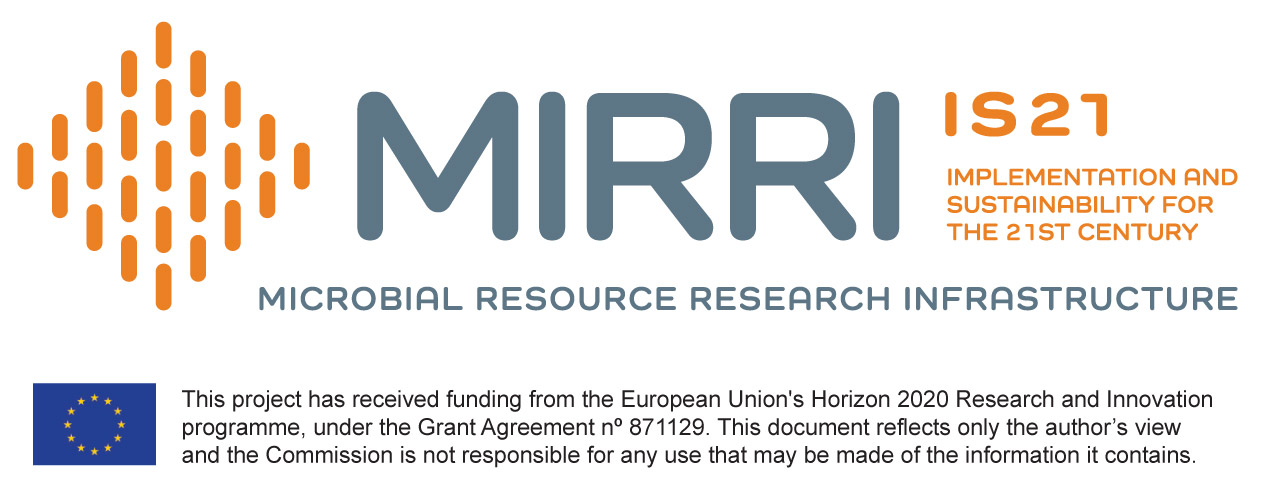
Implementation and Sustainability of Microbial Resource Research Infrastructure for 21st Century
IS_MIRRI21
IS_MIRRI21 Services
- Consultancy and training for public institutes and bioindustries
- Access to the broadest catalogue of microbial resources in Europe
- Identification and characterisation of microbial strains
- Screening and testing of biological materials
- Access to leading state-of-the-art facilities to disclose the significance of microorganisms
- Access to large data sets associated with microbial strains via a user-friendly online platform
Key Project Outcomes
- A fully functional MIRRI- Collaborative Work Environment online platform
- Efficient Transnational Access programme, training and specialised courses, as well as informative materials on the roles of microbes in society made globally accessible
- A viable action plan implemented for the continuity and self-sustainability of MIRRI beyond the duration of the project and the enlargement of its partnerships.
IS_MIRRI21 ambition
IS_MIRRI21 impact
Project duration
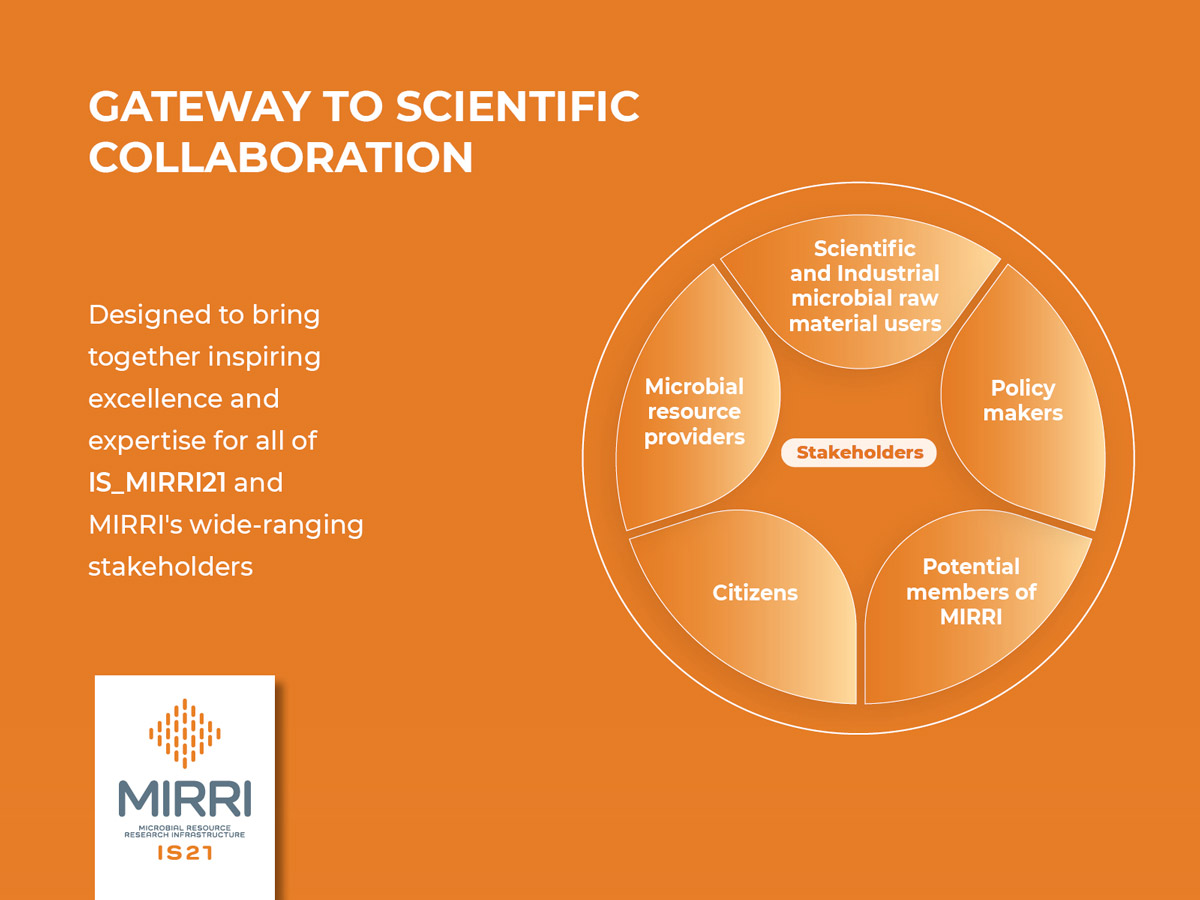
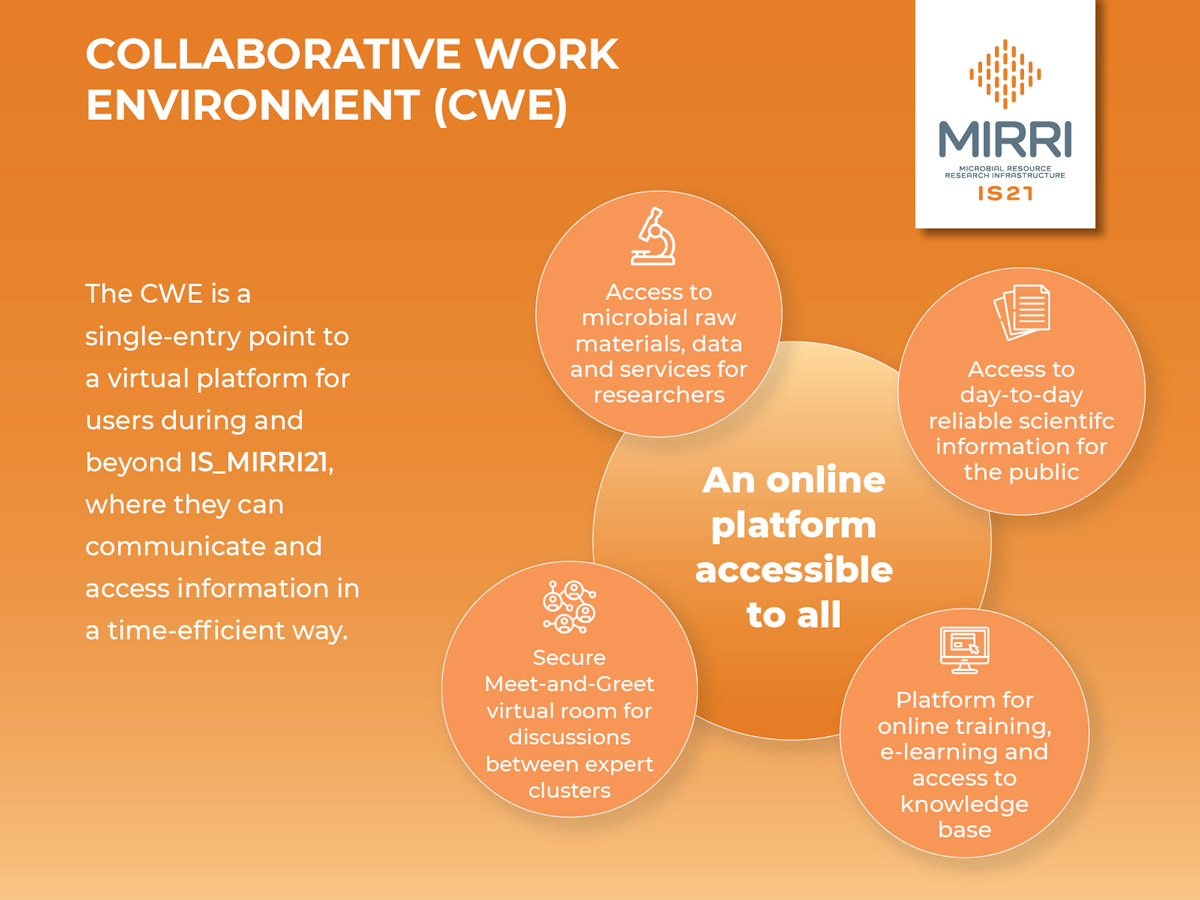
MIRRI
Microbial Resource Research Infrastructure as a sustainable entity
MIRRI is in its construction phase to be established as a European Research Infrastructure Consortium (ERIC) under the EU law.
The MIRRI Memorandum of Understanding to establish MIRRI-ERIC was signed by nine European Union countries and one associated country, which has thus propelled the work to moving forward with MIRRI.
MIRRI-ERIC Headquarters will be hosted by Portugal and Spain.
MIRRI includes over 53 microbial Biological Resource Centres and Culture Collections belonging to 10 National Nodes with over 300,000 strains.
By providing high-quality microorganisms, associated data and the broad expertise of its partners, MIRRI aims to support research and development in the field of biomedical and life sciences.
MIRRI’s EXISTING BIOLOGICAL ISOLATES INCLUDE
Bacteria, yeast, filamentous fungi, virus, archaea, microalgae, prions, bacteriophages, plasmids as well as cloning vectors and over 200,000 clones of DNA libraries.
MIRRI’s CONSORTIUM DOMAINS OF INTEREST AND APPLICATIONS INCLUDE
Fundamental and applied research, human, animal and plant health, aquatic ecology, molecular biology, environmental and food microbiology, agronomy, biotechnology, bio-fuel production, agriculture, cosmetics, water treatment and multiple clinical application.
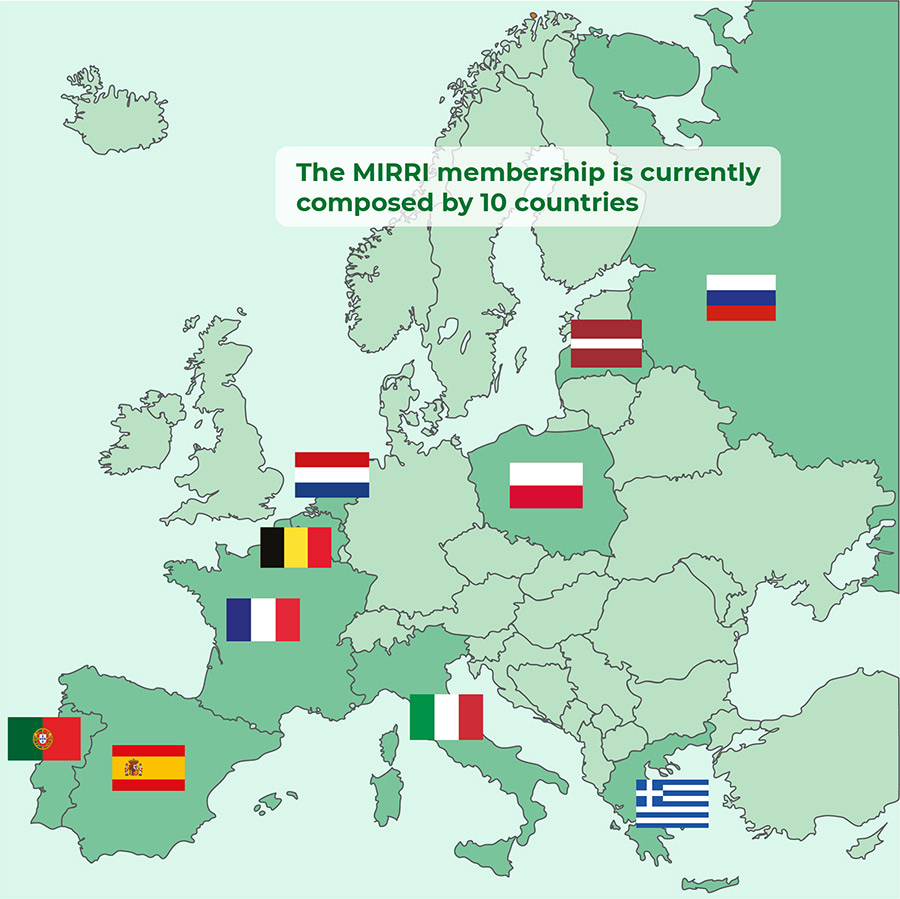
| Project | Name | Country | website |
|---|---|---|---|
| Coordinator | Universidade do Minho (UMinho-MUM) | Portugal | www.uminho.pt |
| Partner | Associação CCG/zgdv – Centro de Computação Gráfica (CCG) | Portugal | www.ccg.pt |
| Partner | Universitat de València Estudi General (UVEG-CECT) | Spain | www.uv.es/cect |
| Partner | University of Las Palmas de Gran Canaria – Spanish Bank of Algae – (ULPGC-BEA) | Spain | marinebiotechnology.org |
| Partner | Institut National de la Recherche Agronomique – CIRM (INRA) | France | www.inrae.fr |
| Partner | Institut Pasteur (IP) | France | pasteur.fr/fr/sante-publique/biobanques-collections |
| Partner | Koninklijke Nederlandse Akademie van Wetenschappen – Westerdijk Fungal Biodiversity Institute – (KNAW-WI) | The Netherlands | westerdijkinstitute.nl |
| Partner | Service Public Fédéral de Programmation Politique Scientifique (BELSPO) | Belgium | bccm.belspo.be |
| Partner | Institute of Agricultural and Food Biotechnology (IAFB-CCIM) | Poland | www.ibprs.pl |
| Partner | University of Latvia Microbial Strain Collection of Latvia – (MSCL/UL) | Latvia | mikro.daba.lv/EN/lu.lv |
| Partner | National and Kapodistrian University of Athens (NKUA) | Greece | en.uoa.gr |
| Partner | University of Torino (UNITO) | Italy | www.unito.it |
| Partner | Institute of Biochemistry and Physiology of Microorganisms, Russian Academy of Sciences (IBPM RAS) – All-Russian Collection of Microorganisms (VKM) | Russian Federation | www.vkm.ru |
